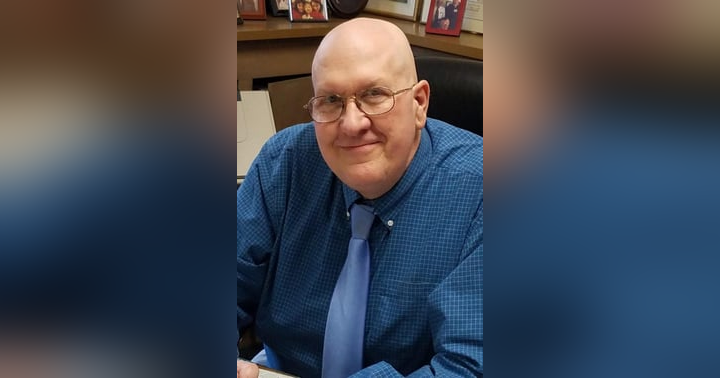Bridging Divides: John Wagner on Faith, Activism, and the Crisis in Palestine-Israel

On this episode of To Be and Do, host Phil Amerson reconnects with Reverend John Wagner—pastor, activist, and founding member of United Methodists for Kairos Response (UMKR)—for a deeply human conversation about faith, interdependence, and seeking justice in Israel and Palestine. Speaking candidly, John shares his transformative journey from a non-activist visitor to an outspoken advocate for Palestinian rights and nonviolent resistance, illuminating urgent realities often overlooked by the broader faith community in the US.
John takes us back to his first eye-opening trip to Israel-Palestine in 2008, when he joined a United Methodist delegation to witness the complexities of the conflict firsthand. Profoundly moved by what he saw, John returned home determined to address the role that US-based organizations—including the United Methodist Church—play through their investment choices. Key to this effort is UMKR’s divestment campaign, which seeks to pull church funds from companies that profit from the occupation and from Israel bonds that directly fund military operations in Gaza.
Phil and John weigh the profound disconnect many US Christians experience regarding Palestinian Christians—descendants of the earliest followers of Christianity, now dwindling under immense pressures. John reflects on how often their presence is unknown or dismissed, and how Palestinian Christian leaders like Alex Awad embody a vital, 2,000-year-old heritage connected to the biblical land.
From his recent journey with an interfaith delegation, John offers a nuanced look at Israeli society, meeting Rabbi Avi Dabush—himself a survivor of the October 7, 2023 attack and a voice for ceasefire and human rights within Israel. These conversations emphasize the diversity and courageous moral stands among both Israelis and Palestinians working for peace.
John and Phil do not shy away from the harsh realities on the ground: restricted access to water, movement limitations, routine harassment of Palestinian communities, and the often-invisible suffering caused by occupation. They stress the need for firsthand engagement and advocacy, pointing out that real change will require more than awareness—it demands action from all who believe in justice.
Three to Five Major Takeaways:
- The power of firsthand experience: Visiting Israel and Palestine is transformational; seeing the situation directly can spark lifelong activism.
- Hidden stories of faith: Palestinian Christians are a significant, historic, yet marginalized group whose voices are often ignored in Western narratives.
- The role of institutions: Churches and faith-based investors hold real power to affect change through ethical investment and divestment strategies.
- Everyday realities of occupation: The struggle for basic rights—like water and freedom of movement—is central to understanding the conflict’s impact.
- Interfaith solidarity and hope: Amid tragedy, courageous voices across religious divides are calling for peace, justice, and creative action.
Tune in for a moving exploration of faith, history, and the call to be and do what matters most.
John Wagner's recommended resources and links:
John Wagner bio and links:
Here are some links I recommend:
United Methodists for Kairos Response - https://www.kairosresponse.org/ UMKR was founded in 2010 in Chicago. We've helped most annual conferences in the United States to consider legislation aimed at bringing peace with justice to the Holy Land, and we've been active at every General Conference since 2012. (It's important to note that United Methodists have been addressing the injustices they've seen in the Holy Land for many years prior to the formation of UMKR.)
Kairos Palestine - https://www.kairospalestine.ps/ This organization represents Christian leaders in the West Bank and Gaza. They've issued many calls to Western churches to stand with them in opposing oppression. The "Kairos Document" is particularly important.
Friends of Sabeel, North America (FOSNA) - https://www.fosna.org/ - FOSNA works with Sabeel ("The Way" in Arabic), one of the main Christian activist groups in Israel and Palestine. If you want to go on a solidarity trip please contact the folks at FOSNA.
I recommend this website on Christian Zionism: https://www.christianzionism.org/ It was created by Evangelicals for Evangelicals. Christian Zionism pushes for Israeli control of all the Holy Land, claiming it's a biblical mandate. This website makes it clear this is not the case.
I would hope people would read this article I wrote last September: https://thehill.com/opinion/education/4871480-college-students-israel-protest/ The most important part is in the first few paragraphs where I provide links to actions taken by Christian denominations to oppose the occupation of Palestine. There have been quite a few.
I believe this video created by United Methodist missionaries is even more important than it was when it came out ten years ago - https://www.youtube.com/watch?v=rKb8SYVB8KQ When people ask "Well, what about Hamas?" it's helpful to let them know that as non-violent solutions like boycotts and divestments were rejected, those advocating violence were given a greater voice. Our United Methodist missionaries, past and present, plead for United Methodists and all Christians to advocate for a just peace. "Time is running out," they say over and over.
John Wagner is a pastor in the West Ohio annual conference of the United Methodist Church. He first visited Israel and Palestine in 2008 and was moved and shaken by what he'd seen. He was the first convenor and one of the founders of United Methodists for Kairos Response (UMKR), and also served as co-chair of its steering committee. After letting go of leadership in UMKR he continues to work for a just peace through a number of other Christian and interfaith organizations. He was part of an interfaith solidarity delegation to the Holy Land in late 2024.
John has served as pastor to congregations in Indiana and Ohio for the last 43 years. He's married to JoAnn and together they have 3 daughters and two grandchildren.








